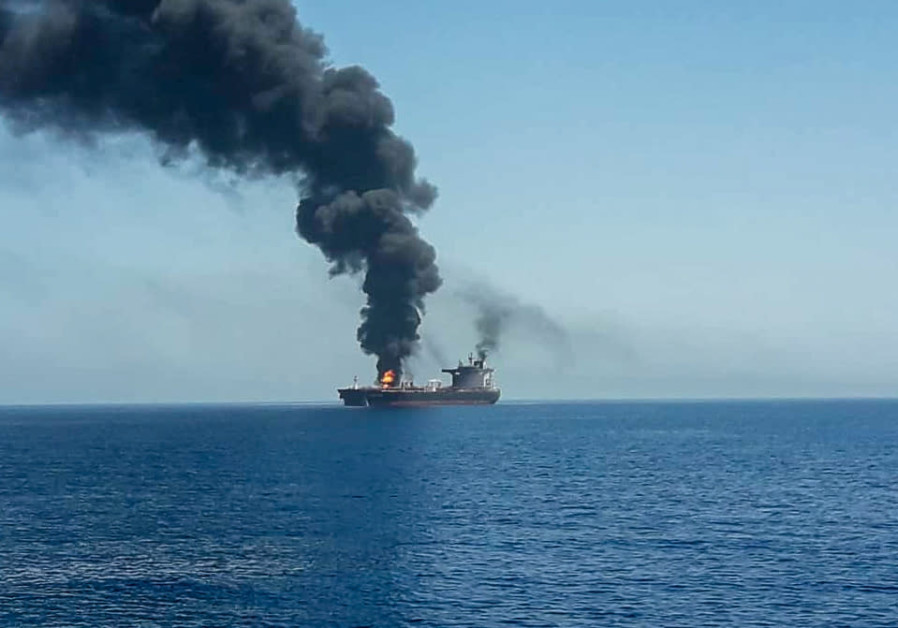Who is targeting US forces and foreign oil companies in Iraq?

An oil tanker is seen after it was attacked at the Gulf of Oman. (photo credit: ISNA/REUTERS)
For three days in a row rockets have been fired at areas where US forces are present and near foreign oil workers in Iraq. They come as US-Iran tensions rise and may pose a serious threat to US policy in Iraq as well as the functioning of oil facilities if they increase.
A rocket struck near an area used by ExxonMobile, wounding three people on Wednesday in southern Iraq. It is one of at least three attacks over the last week, one of which targeted an area near US forces in Mosul on Tuesday and another struck Camp Taji where US forces are based, on Monday. The US-led anti-ISIS coalition, which is based in Taji and conducts training of Iraqi forces, says that Iraqi security forces are investigating the incident.
The attacks paint a disturbing picture of what may be happening in Iraq. On May 7, amid rising US-Iran tensions, US Secretary of State Mike Pompeo flew to Iraq and discussed Iranian threats with officials. On May 19 a rocket landed near the US embassy in Baghdad. The US has blamed Iran and its proxies for that attack. Now the latest round of attacks, apparently increasing everyday, include information that Iraqi authorities may have received a “tip-off” about a threat to the US consulate in Basra. That consulate was closed last year after a rocket attack against it.
The attacks escalated on Wednesday to include the oil facilities in southern Iraq. Why might someone target these areas? Iran has said that it could cut off oil exports that go through the Straits of Hormuz amid US sanctions. The US has sought to bring Iranian oil exports to zero. Could a group affiliated with Iran seek to cause havoc in Iraq’s oil industry? The downside for Iran if that is the case is that many Iraqis in southern Iraq are also affiliated to political parties that are sympathetic to Iran. So this would sabotage their own industry. Yet people in Basra are also angry at the central government due to failed infrastructure. In the summer of 2018 protesters in Basra targeted oil companies because they felt the money from oil export doesn’t end up in their hands.
According to Reuters the Basra rocket fell within 100 meters of an areas where Exxon workers live. Foreign Exxon workers had left the site last year but were beginning to return. Tensions in May had led to concerns for returning foreign staff, Kurdish media Rudaw reported. 21 staff were evacuated after the attack. Iraq says it is taking security measures against more attacks.
The rocket attacks appear to be linked and to be a message. The rocket launched used for the attack in Mosul was discovered. How would a. truck carrying a rocket launcher have gotten through numerous checkpoints around Mosul? If it was ISIS this would seem improbable, even though ISIS cells operate, they do so clandestinely and not in the open. If it was a rogue pro-Iranian militia, did its members bribe their way through checkpoints, or know the area?
One rocket attack could be ascribed to a lone threat or a cell. But an attack on Taji, Mosul, Basra, Baghdad and also a mortar attack on Balad air base, paints a clear picture of rising threats in Iraq. With US-Iran tensions at a high, Washington must be concerned about what comes next.
Join Jerusalem Post Premium Plus now for just $5 and upgrade your experience with an ads-free website and exclusive content. Click here>>






Comments are closed.